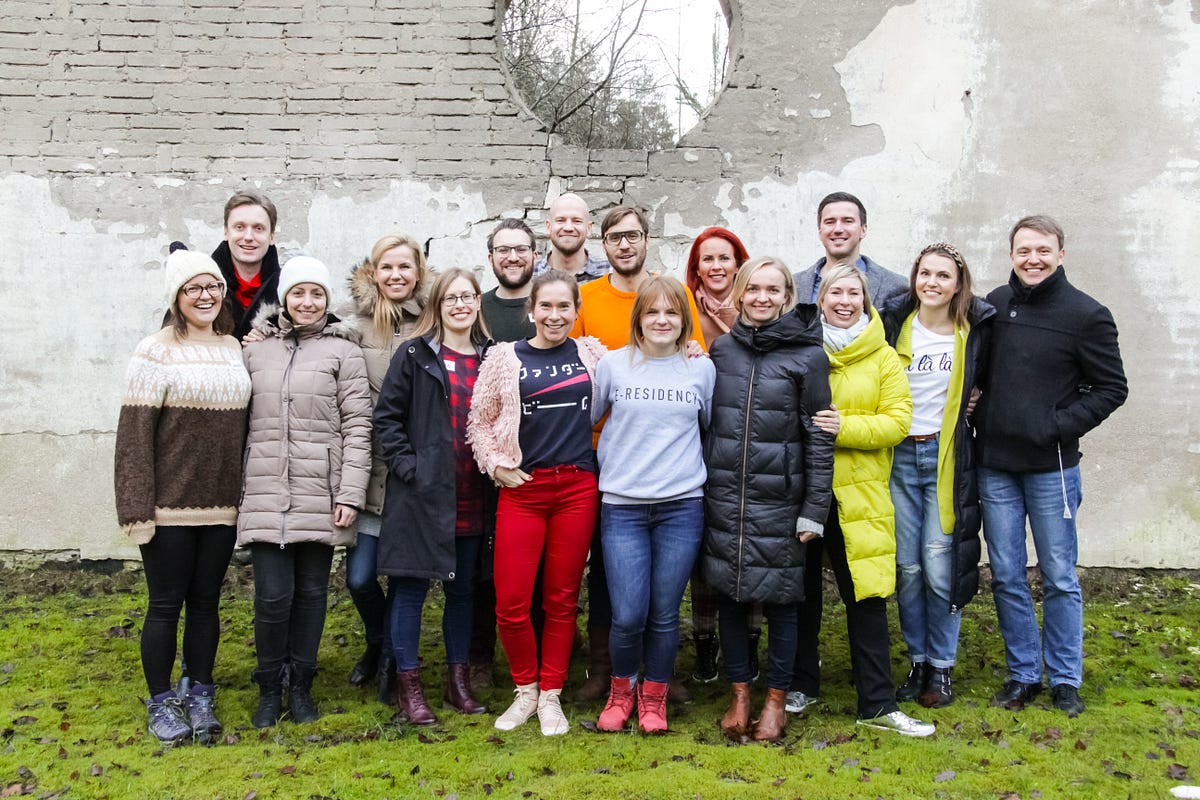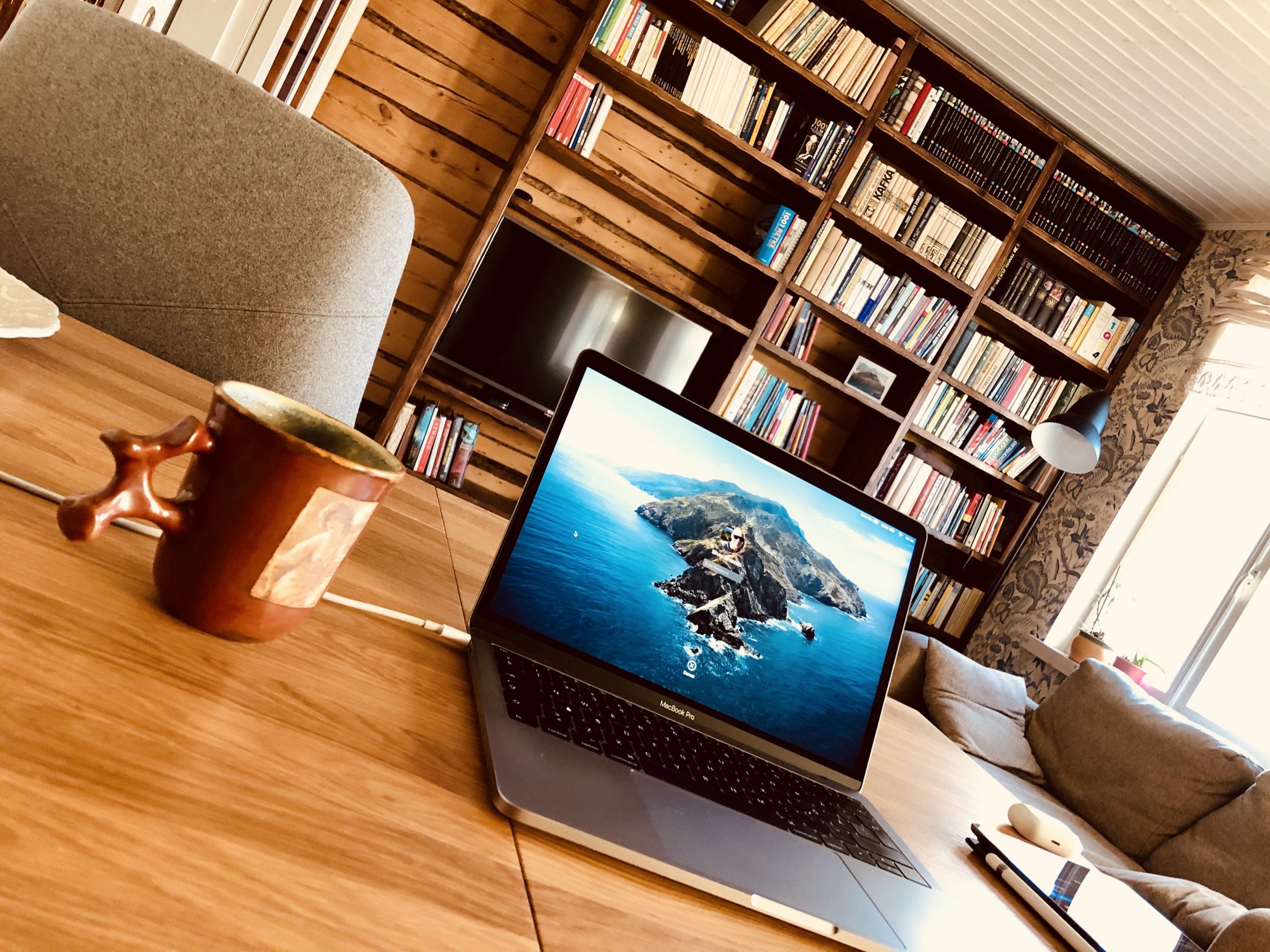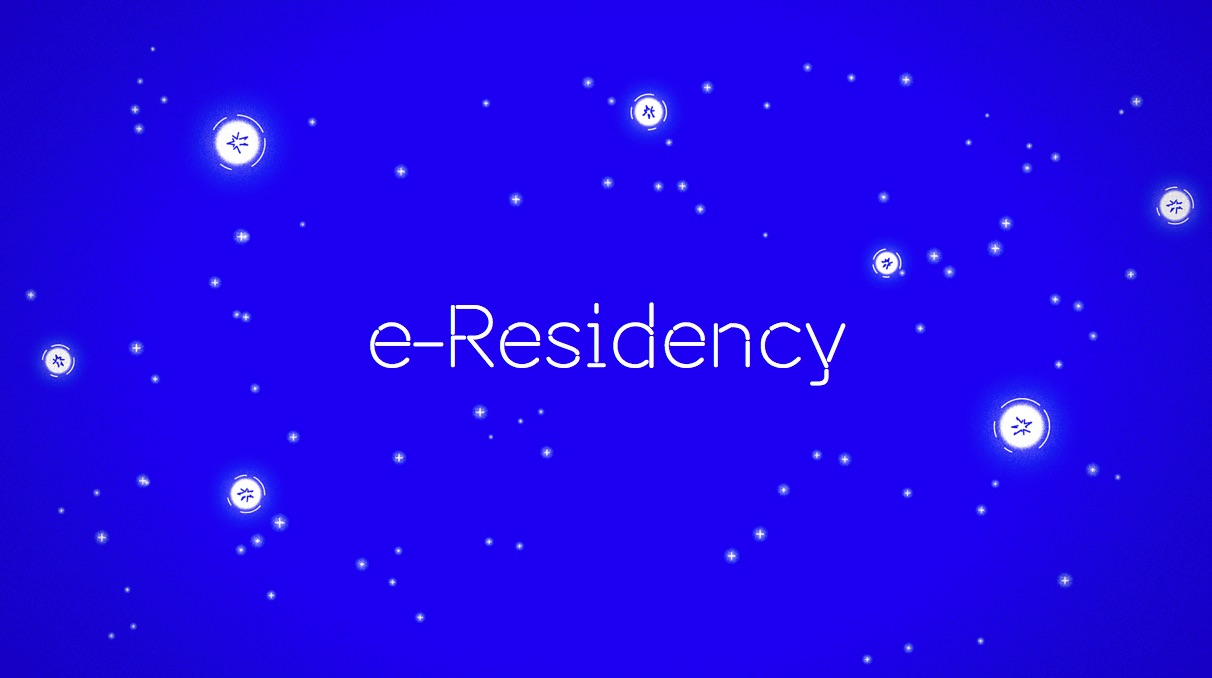10 ways e-residents are adapting their businesses during the crisis
A few weeks ago, e-Residency surveyed you — our community members — to see how you’re doing right now. Thank you for your overwhelming response. With over 1,500 survey completions and a wealth of information shared, thank you for giving us very personal insights into the challenges you’re facing right now and your hopes for the future.
We’ve started to go through the valuable data gathered from your survey responses to both gauge the mood of our community and to analyse what you expect from e-Residency. In the coming weeks, we’ll be sharing our analysis of the survey results. This blog post is the first in this series.
This blog post focuses on how COVID-19 is impacting e-residents and how they are adapting their businesses in response. We’ve heard some word-of-mouth examples, like Vicky from Vistalworks tackling the increase in online scams and misinformation created by the crisis, and Georg and Ian from Mansiontech pivoting to new revenue streams to fortify their digital marketing business.
The survey confirms that the ‘covid pivot’ is more widespread.
In fact, equal proportions of e-resident business owners who responded are either adapting their businesses or continuing business as usual. Based on the responses of those adapting, we’ve identified ten different ways they are doing so. These range from survival tactics to shutdown, from going virtual to pivoting to new products, markets or clients, and from helping those in need to focusing on self-improvement.
The survey also confirmed that e-Residency has made it easier to undertake these activities during the crisis as it is ready made for running a borderless business remotely, supporting a lean and agile company setup, and focusing on creating value.
Who participated?
1535 people participated in the survey, including 1115 e-residents.
Just under half of the e-residents surveyed have registered companies in Estonia, and these 516 people are the focus of this article.
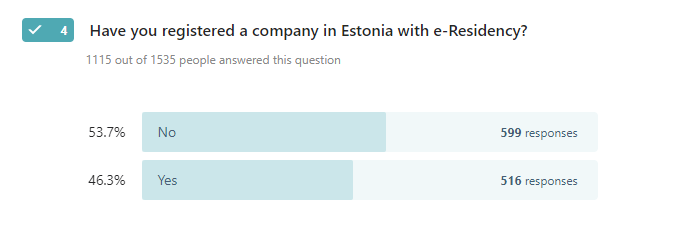
Impacts of COVID-19 on e-resident companies
A major challenge for entrepreneurs right now is how to plan and strategise amongst huge business uncertainty. Aside from the horrendous health and social implications of the COVID-19 pandemic, the economic consequences of the crisis are also expected to be enormous.
Already, we have seen a sharp decrease in demand for goods and services by both consumers and businesses, a downturn in trade and manufacturing, and major disruptions to supply chains.
Through the survey, we were interested to see how our community is being impacted. We therefore asked e-residents with companies to rate on a scale of 1 -10, how seriously they think the pandemic will impact their businesses this year. While a simple measure, the fact that 64% of respondents rated the impact as 7 or higher and almost a quarter (22.5%) responded with the highest score of 10 shows that there is great concern amongst our community.
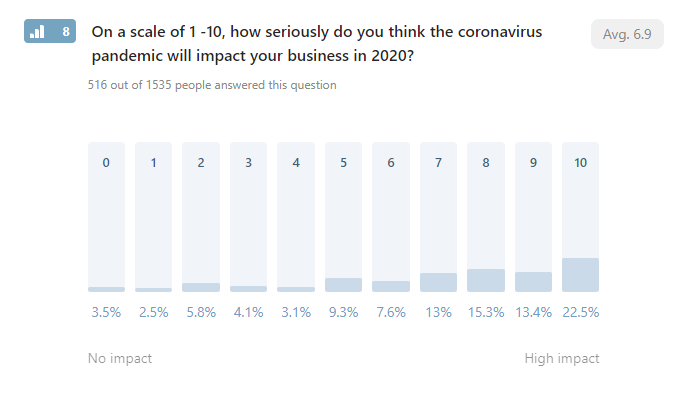
E-residents also responded to an open question of how covid-19 is affecting them. Their freeform responses encapsulate a wide range of feelings, the majority of which are negatively associated (e.g. anxiety, anger, loneliness) or neutral (e.g. uncertainty, boredom, lethargy), and a smaller group are more positive (e.g. hope, contemplation, humour, and determination).
The majority of responses identified several key topics affecting them:
- the inability to leave home or travel
- missing friends and family
- working from home
- being restricted from doing exercise or social activities
- a need to reevaluate business ideas and activities
- not being able to pick up their e-Residency digital identity card
- lost profits, income, or business opportunities
- difficulties in planning
Some respondents said the crisis has had no effect and a few people said it has even helped their business or find a better work/life balance.
When asked about the biggest obstacle facing their companies, the vast majority nominated conditions brought about by COVID-19:

Of those who nominated ‘other’, a handful made specific mention of the difficulties operating in the tourism sector right now. A few others responded that they have had no negative impacts, and rather have had too much demand and not enough time.
The covid pivot: how e-residents are responding
In the face of the impacts of COVID-19, businesses across the world are looking for solutions to survive the pandemic by adapting or changing activities, business models, or priorities.
In the e-Residency team, we’ve even given this a nickname — the ‘covid pivot’.

We asked e-residents with companies in the survey if they have made changes to their business or discovered new opportunities, as a result of the pandemic. Near equal proportions said either it’s business as usual or they have pivoted their business / discovered new business opportunities.
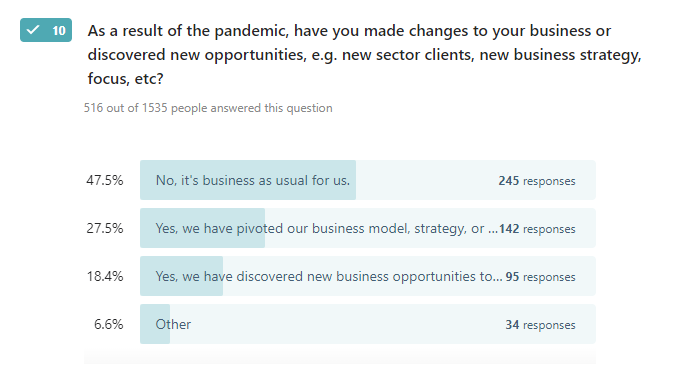
We asked those in the latter category to provide more detail about the kinds of changes they have made. After careful review and analysis, we categorised the 237 freeform responses into the below ten categories. While there is some overlap, these are the clearest trends we identified in the information provided to us.
- Change of product, service or offering: The majority of respondents to this question (23%) said they have either adapted their existing offerings or are selling new products or services. For many, this involves shifting focus to products or services that are in demand by people staying at home (e.g. digital games, virtual tourism, eCommerce, e-education) or to businesses shifting their business online (e.g. digital marketing, content production, software consulting, executive coaching).
- Going virtual: another popularly cited theme of adapting to the crisis was shifting to remote work and taking business online, with 19% of respondents. For about half of these, this shift was purely practical and necessary as a result of lockdowns (e.g. moving training sessions online, meeting clients online), whereas for others it was part of a bigger strategic change and search for new business opportunities in the digital world (e.g. offering new online services, finding new clients in other countries, pivoting focus to online).
- New clients, markets, or sectors: 13% said they are adapting their business by looking for new clients or diversifying into different markets or sectors. Some suggested that they were looking for clients in sectors less affected by the crisis (e.g. eCommerce, gaming, healthcare) while others are switching their geographical focus to countries in which the curve of infections is starting to flatten.
- Helping clients get through the crisis: 13% are grouped under the category of helping clients or customers “keep their heads above water”. Some of their methods include offering timely products and services, offering focused reach-out strategies, helping build online presence, speeding up processes, reducing prices, offering free trials or services, and changing payment terms.
- Research and development (R&D): about 12% said they are investing in R&D to improve their approach and offerings. This variously involves researching emerging markets or new clients, evaluating business models, developing new products or services, optimising existing resources and business processes, and discovering new technologies. Also included in this category are those who are thinking about or considering options on how they can adapt, as well as a few who are building components of the business they now have time for.
- Survival mode: the respondents in “survival mode”, about 10%, said they are currently focusing on reducing costs to ensure financial liquidity, staff layoffs, restructuring, and looking for investment opportunities. This group is essentially trying to survive the crisis by hunkering down to prepare for when they can start usual operations again.
- Shutdown, pause or delay: 8% said they were either pausing their operations or shutting them down completely. Most cited a lack of business continuity due to the crisis, particularly in the tourism and event sectors, or lower client demand as the reason they took this route. We also included in this category a few responses citing a delay in starting a new business.
- Responding to those in need: 5% of respondents said they are offering their expertise to respond to urgent needs created by the crisis. For example, some respondents are producing or selling medical kits and antibacterial products, one is supporting an e-education platform, and another has re-purposed the base of their software to create health monitoring software for doctors to communicate with covid-19 patients using voice capture/feedback technology and do early detection of symptoms while the patient is at home. Several respondents are also helping others with money, food, clothes, and medicine or supporting struggling businesses survive the crisis.
- Focus on marketing: 5% said they were spending their time focusing on marketing activities right now, including spending more time writing and publishing relevant content, reevaluating advertising and marketing strategies, increasing promotional activities, and developing their online brands.
- Self improvement: 2% of e-residents responded to this question that they were spending the downtime created by the crisis to invest time and money into learning new skills or personal projects, such as learning a language, computer-based training, and even renovations.
How has e-Residency helped during the crisis?
We’ve now offered insights into how skilled e-resident entrepreneurs are tackling the challenges of operating a business right now in order to inspire others to find opportunities amongst the uncertainty.
But has e-Residency itself helped?
Of the e-resident company owners surveyed, 61% agreed that e-Residency has made running a company online easier or helped during this crisis. We asked why (or why not) and, while I will leave more detailed analysis of these responses for a later blog post, two strong themes emerged.
Survey respondents confirmed that e-Residency is ready made for remote work and running a borderless business online. One survey respondent said e-Residency allows “fully digital business management” and another said it is “location independency at its best”.
It therefore helps entrepreneurs and their companies to be digitally resilient even at a time when borders are closed and international travel shut down, the majority of people are learning to work from home, and lockdowns are in place for all but essential needs. As one respondent put it:
“Everything is run remotely/online, which gives a lot of flexibility and comfort, especially during the lockdown period.”
Learn more about starting an Estonian company as an e-resident:
Another described it as simple as:
“I can manage my company with just a computer and WIFI.”
The survey also revealed that by providing access to Estonia’s advanced e-governance services, e-Residency empowers entrepreneurs to run lean and agile businesses, meaning they spend more time creating value and less on admin. E-residents can thus more quickly adapt their business operations, activities and priorities and thus both survive the crisis and have better opportunity to thrive long term. A survey respondent described it in these terms:
“e-Residency is now one of the few aspects of doing business that is not affected and it is very nice not to have to worry about.”
The lack of bureaucracy, flexibility in switching business models, simple accounting procedures, and easy and quick processes of digital signature were all cited by respondents as reasons e-Residency and access to e-Estonia has made running their business during the crisis easier.

Or as one respondent said:
“Efficient e-life in Estonia”
We couldn’t have put it better ourselves!
More from e-Residency
- Sign up for our newsletter
- Watch fresh video content - subscribe to our Youtube channel
- Meet our team and e-residents - register for our next Live Q&A
